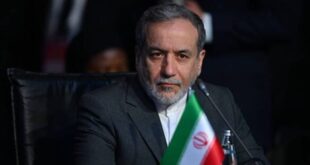LONDON — World powers agreed on Monday to work on a new UN Security Council resolution to put pressure on Iran over its nuclear programme but remained committed to seeking a negotiated solution, British officials said.
Few details emerged from the London meeting but US State Department spokesman Sean McCormack said the world powers would hold phone talks on Thursday “at which time they hope to be able to hammer out the elements of a UN sanctions resolutionâ€.
Iran dug in its heels over its atomic programme as the world powers met to discuss tightening UN sanctions against the Islamic Republic. The West fears Iran is trying to build nuclear weapons but Tehran says the programme is only for electricity.
The five permanent veto-wielding United Nations Security Council members —the United States, France, Russia, China and Britain —plus Germany met against a background of rising international tensions over Iran’s nuclear ambitions.
The statement that the major powers were still committed to a negotiated solution followed Russian Foreign Minister Sergei Lavrov’s comments earlier on Monday that he was worried by more frequent talk of possible US military strikes against Iran.
“We had a productive first discussion of the next steps… We began work on a new Security Council resolution,†said John Sawers, political director of the British Foreign Office.
“We also considered how best to reengage with Iran. We are all committed to seeking a negotiated solution,†he said in a statement.
In Washington, White House spokesman Tony Snow said: “The United States continues to work with its allies on finding ways to make clear … (if Iran continues) along the path that could lead to nuclear weapons they’re going to pay a cost, and that it’s an unacceptable outcome for the international community.†But Snow said the United States saw the concerted diplomatic activity and pressure that brought North Korea back to the negotiating table over its nuclear programme as a possible template for dealing with Iran.
The tension over Iran’s nuclear programme kept oil over $61 a barrel on Monday, weighed on the dollar and drove safe-haven bonds and gold higher.
 The rhetoric was escalating on both sides in the standoff.
Iranian President Mahmoud Ahmadinejad said his country had “no brake and no reverse gear†on its nuclear policies, prompting US Secretary of State Condoleezza Rice to say Tehran needed a “stop button†for its programme.
US Vice President Dick Cheney has said all options were on the table after Iran’s refusal to heed a UN deadline for halting uranium enrichment. An Iranian deputy foreign minister responded by saying Iran was prepared even for war.
Washington has sent a second aircraft carrier to the Gulf with supporting warships, seen as a warning to Iran, and an article in the New Yorker magazine said a Pentagon panel had been created to plan a bombing attack that could be enacted within 24 hours of President George W. Bush’s command.
British Prime Minister Tony Blair’s spokesman dismissed the article, saying Blair had spoken for Washington too when he denied recently there were plans for military action.
British Foreign Secretary Margaret Beckett said Iran was treading a “dangerous route†but the West wanted to negotiate.
“The steps that we have taken are reversible. There is nothing that we would like better than to be able to reverse them and no longer to have to continue with sanctions,†she told a news conference in Islamabad.
In Tehran, the government said the West’s demand Iran suspend uranium enrichment was “illegal and illogicalâ€.
“It is in contradiction with the Iranian nation’s dignity,†government spokesman Gholamhossein Elham told a news conference.
“We are ready to preserve our legal rights through talks.†Iran says it is entitled to nuclear power to generate electricity and wants to negotiate with the Europeans and Washington without giving up its right to enrich uranium.
No other details were immediately available from the London meeting but the world powers had been thought likely to discuss imposing a travel ban on senior Iranian officials and restrictions on non-nuclear business.
UN sanctions were first imposed on Iran in December, barring the transfer of technology and know-how to its nuclear and missile programmes. The resolution said further measures could follow if Iran refused to halt enrichment by February 21.
 Eurasia Press & News
Eurasia Press & News



